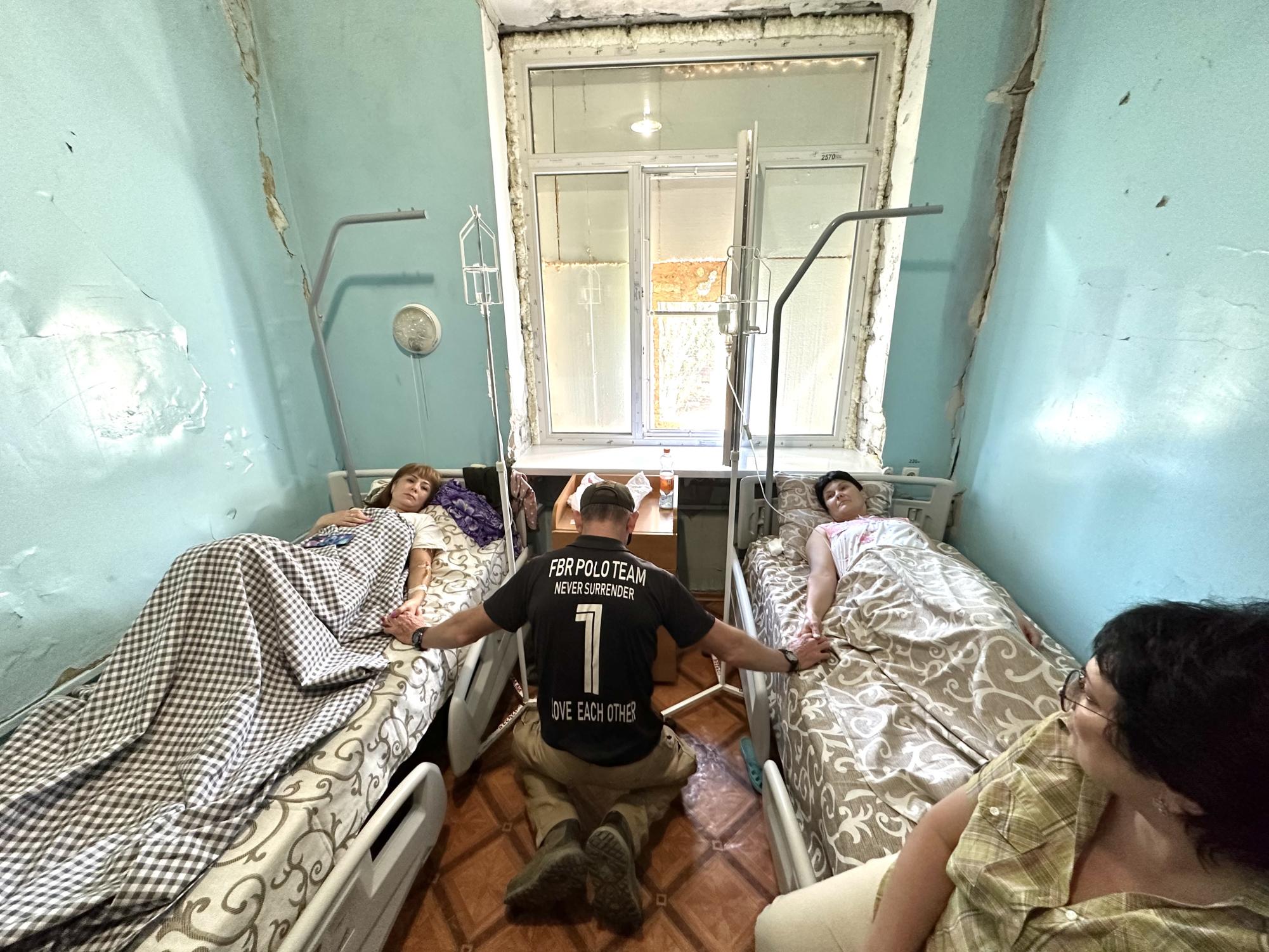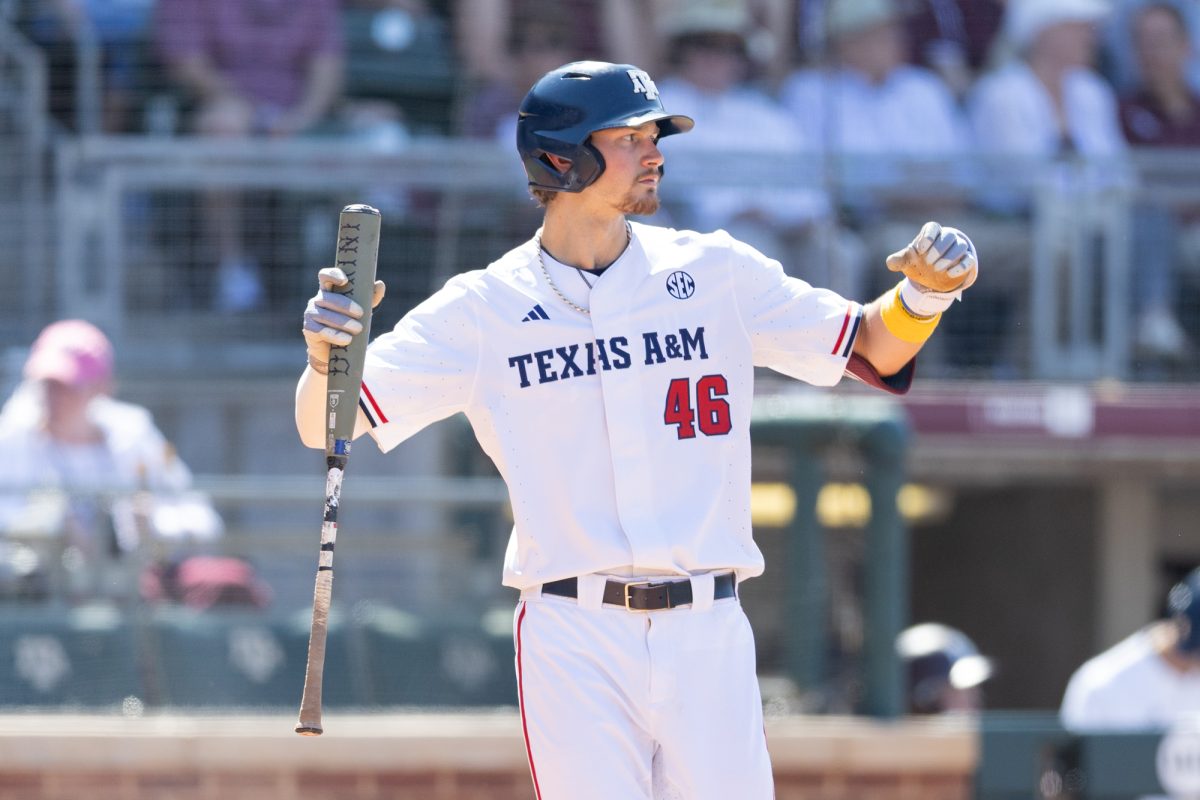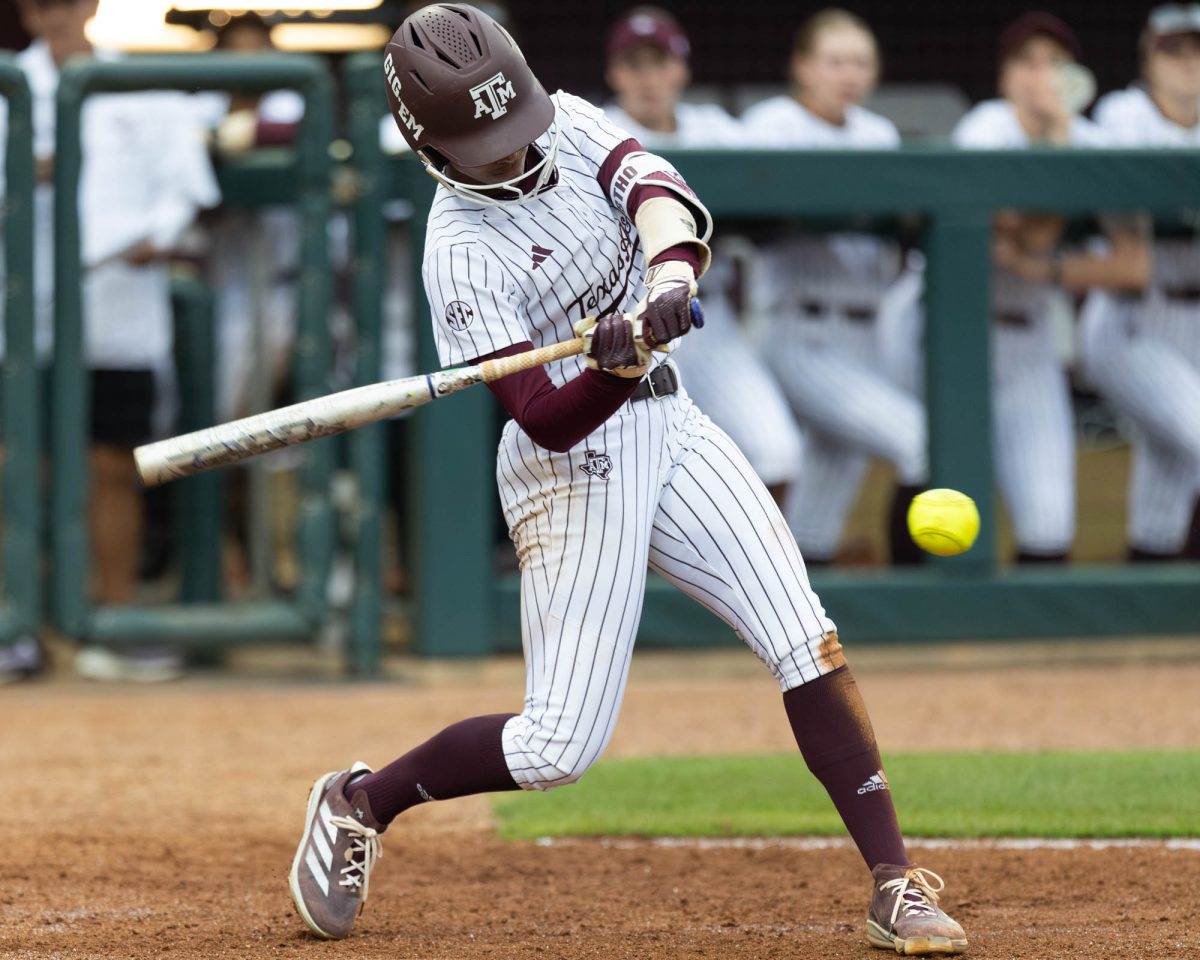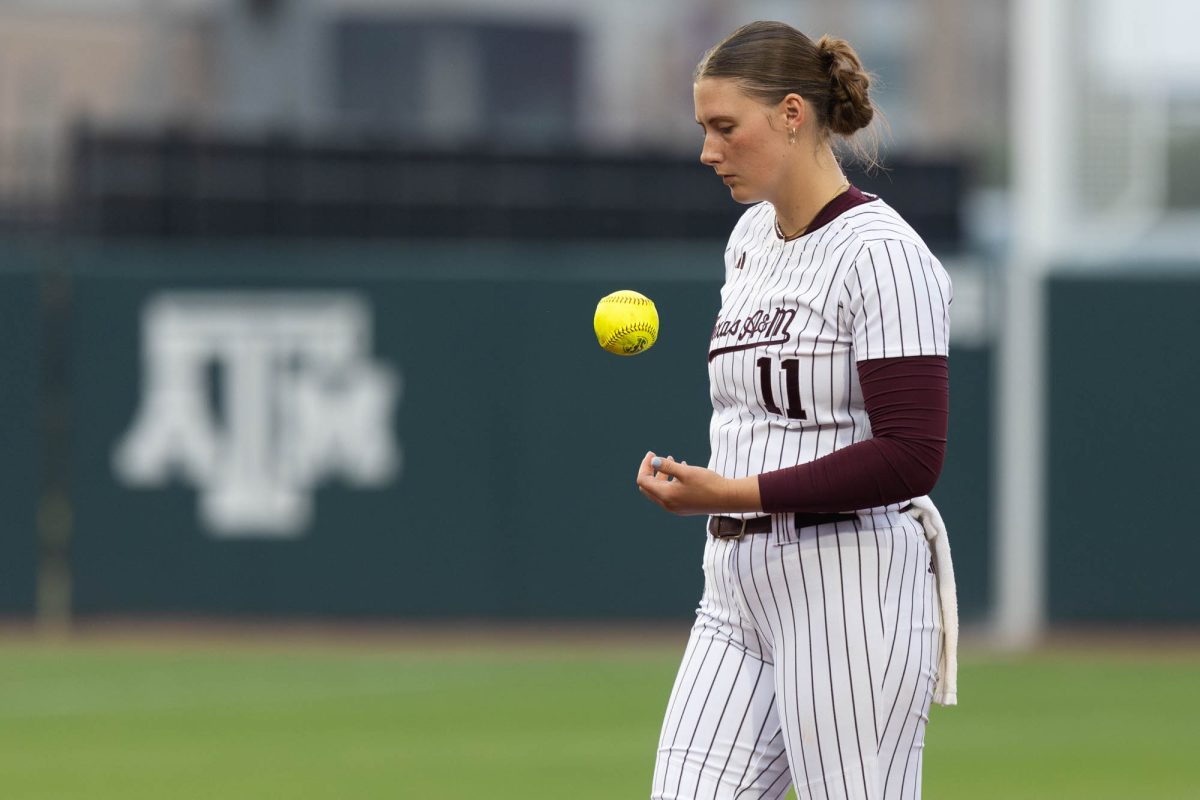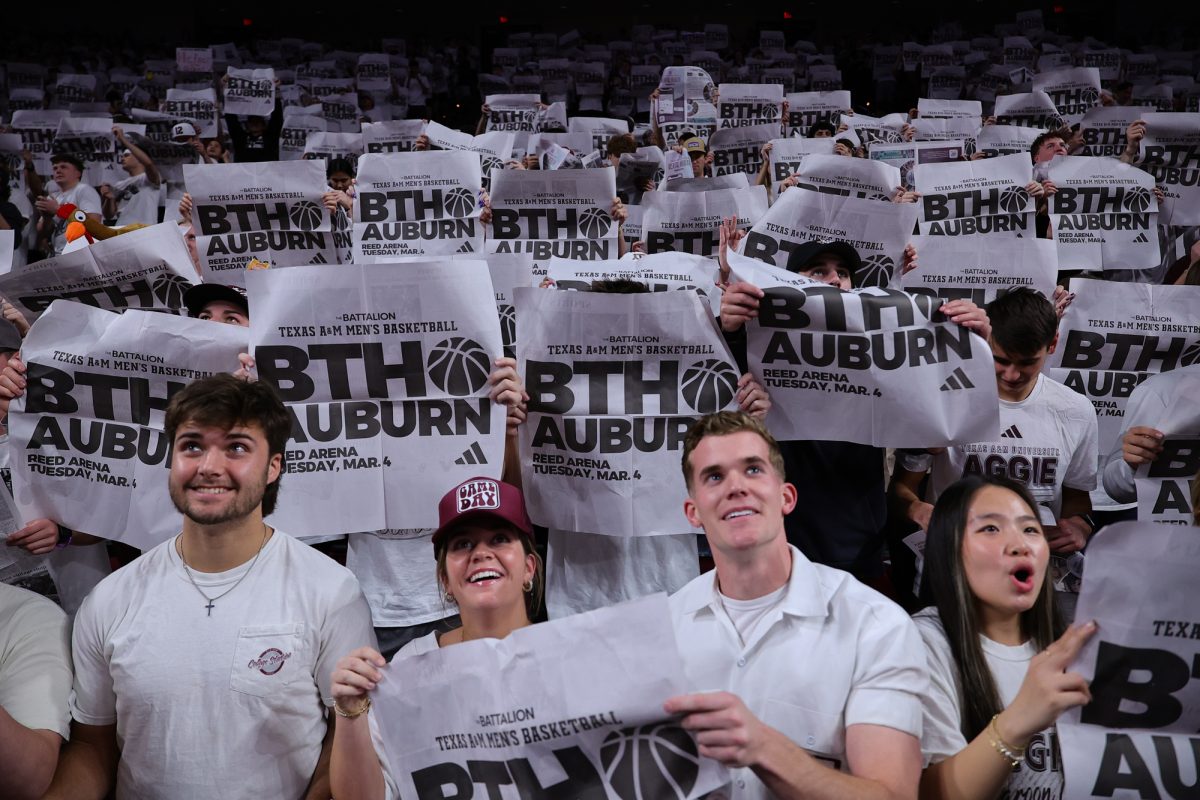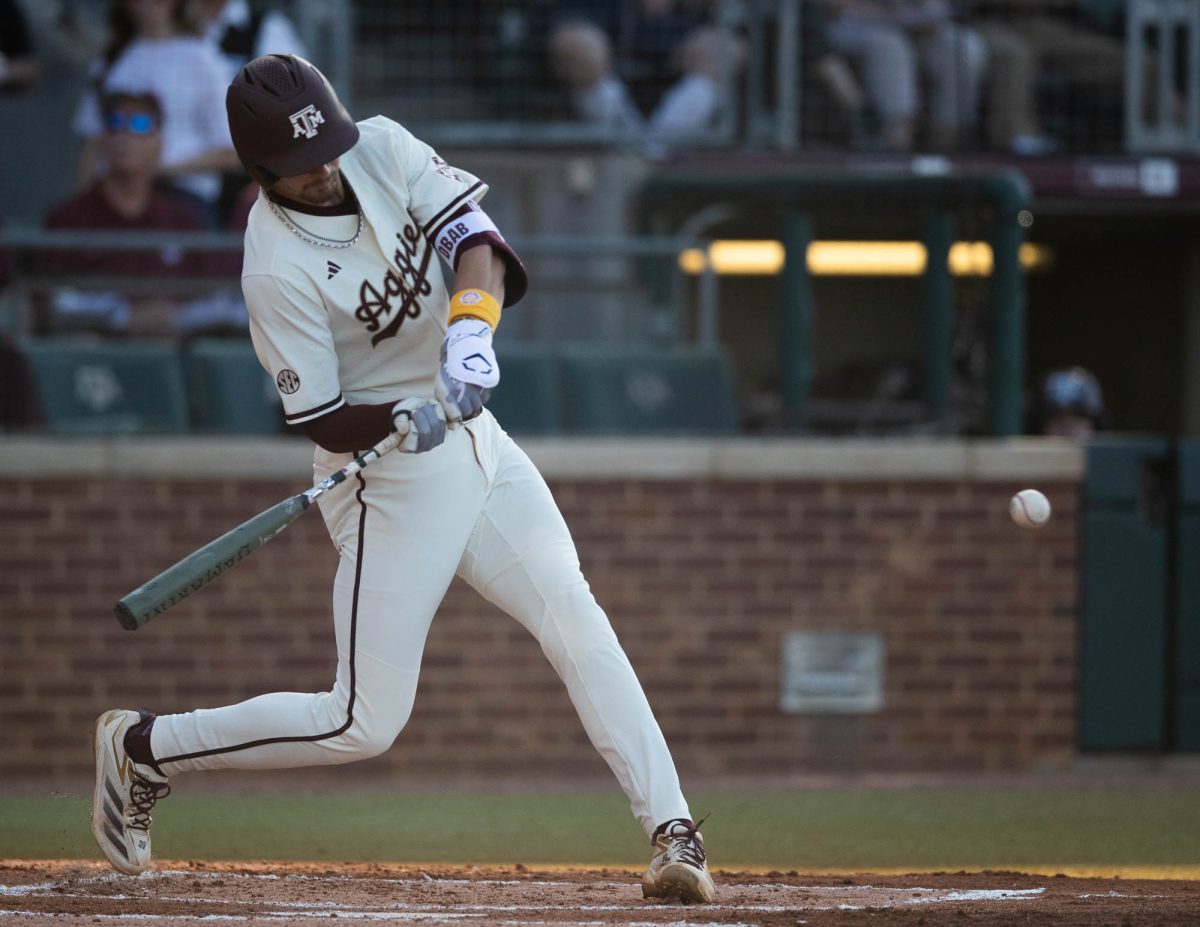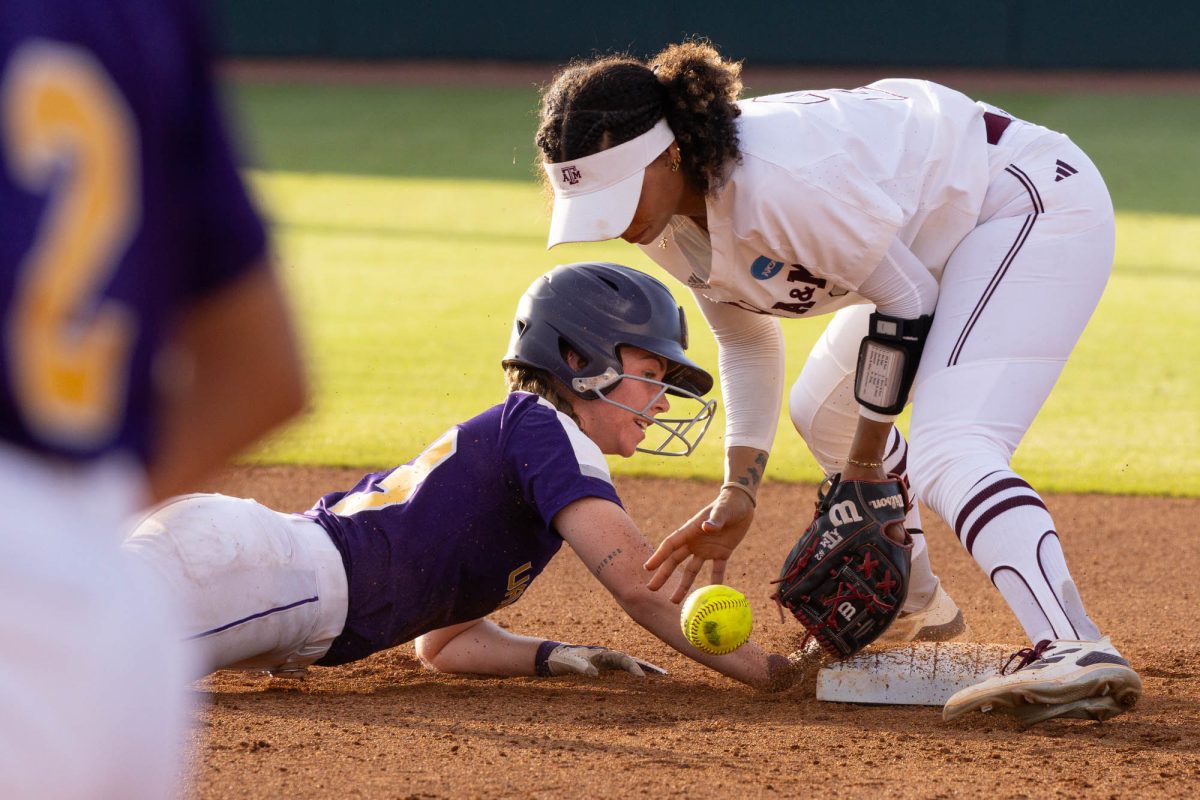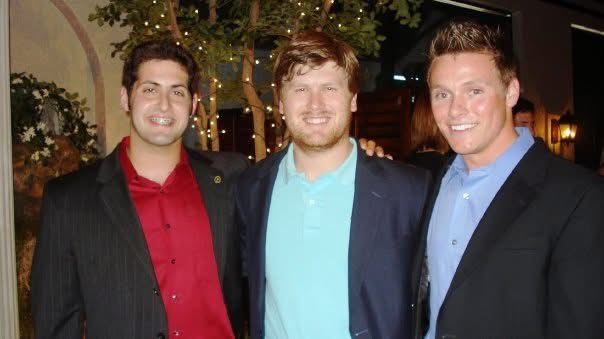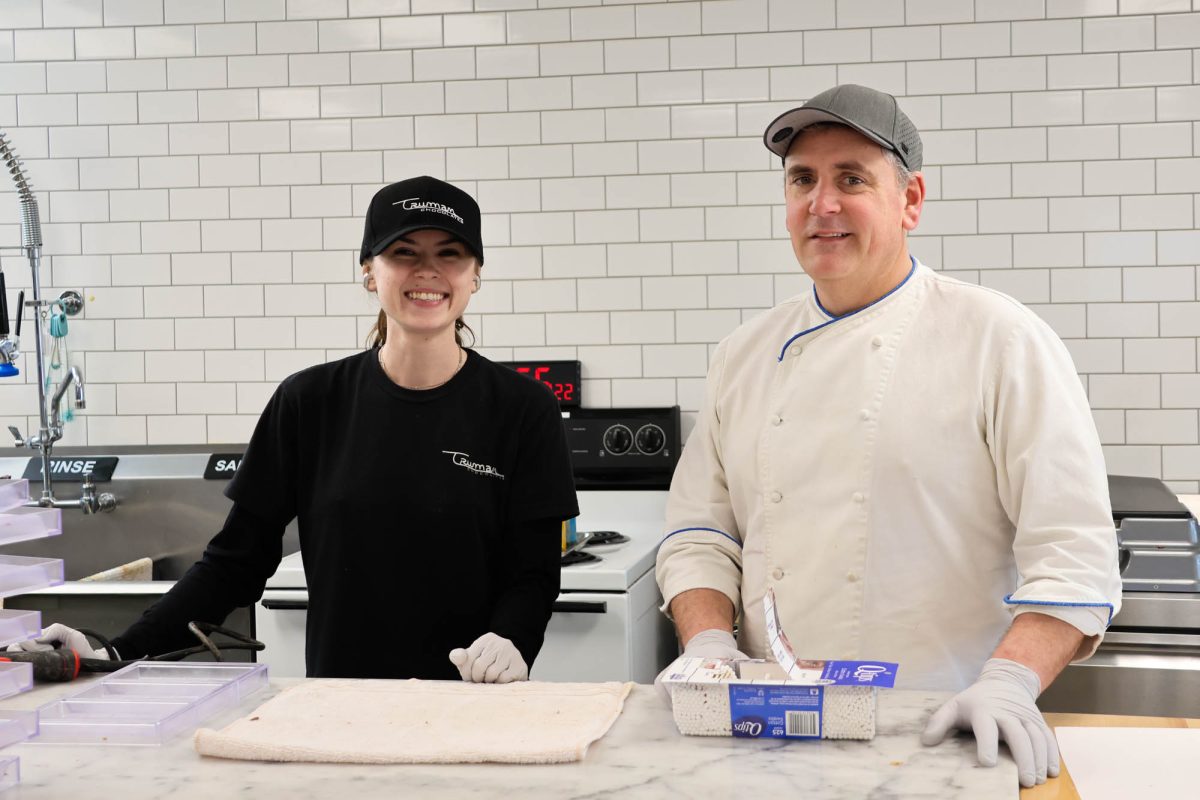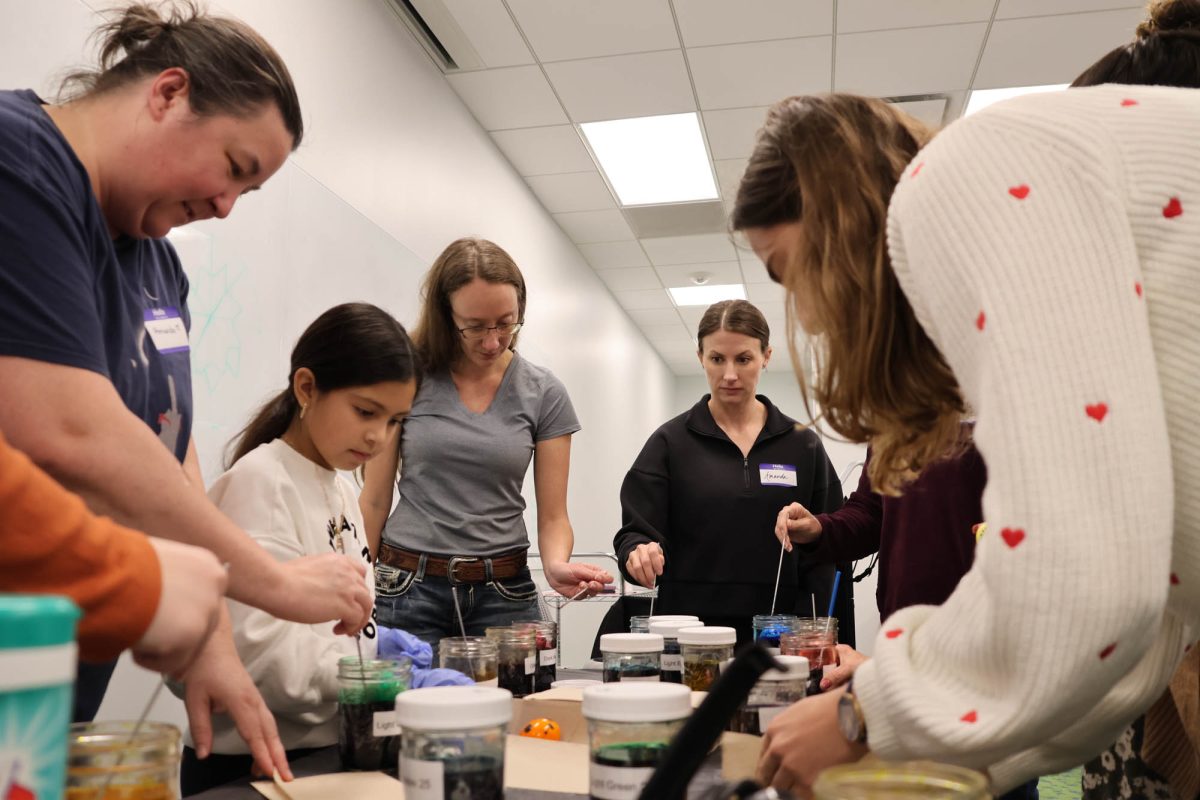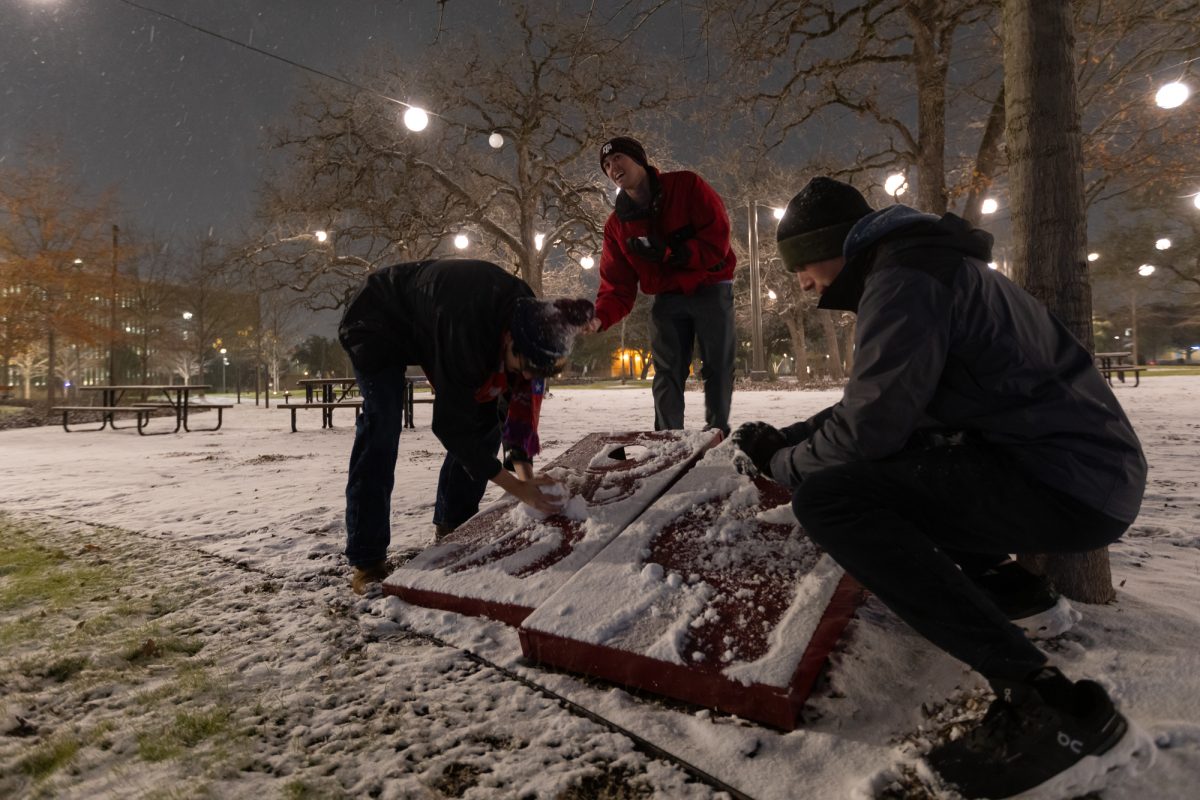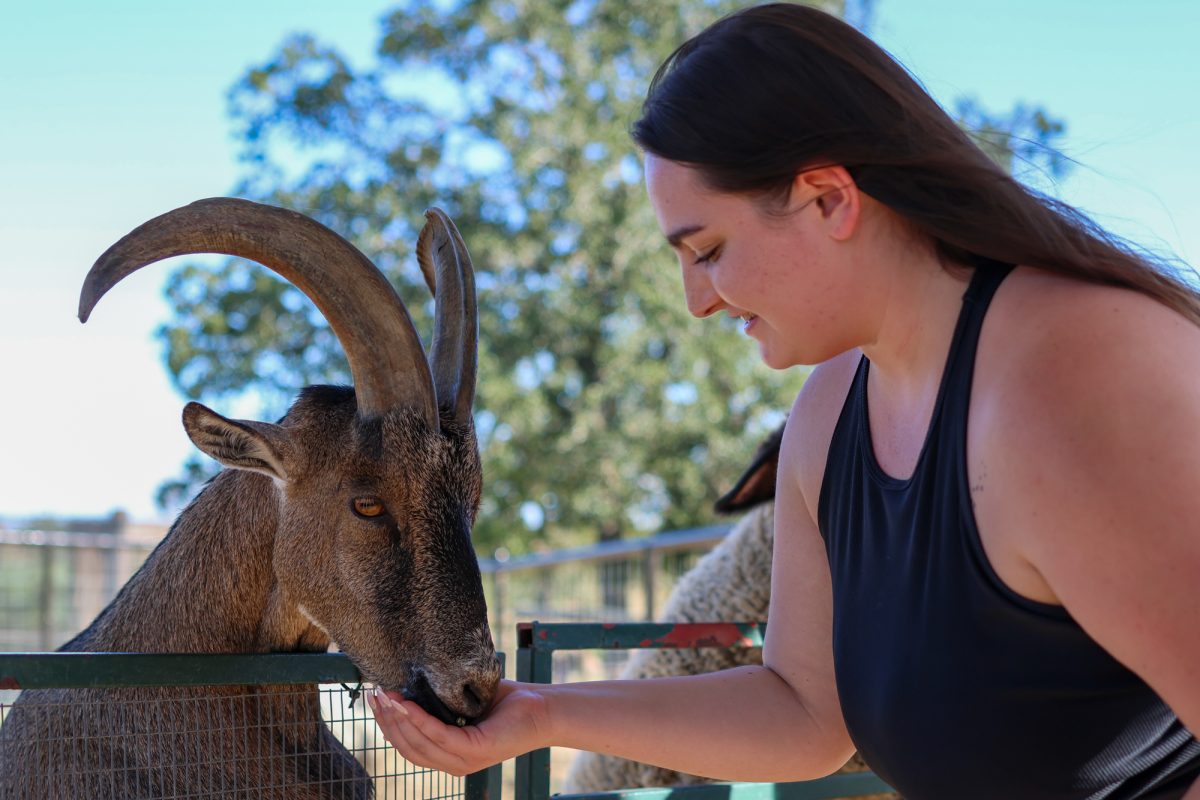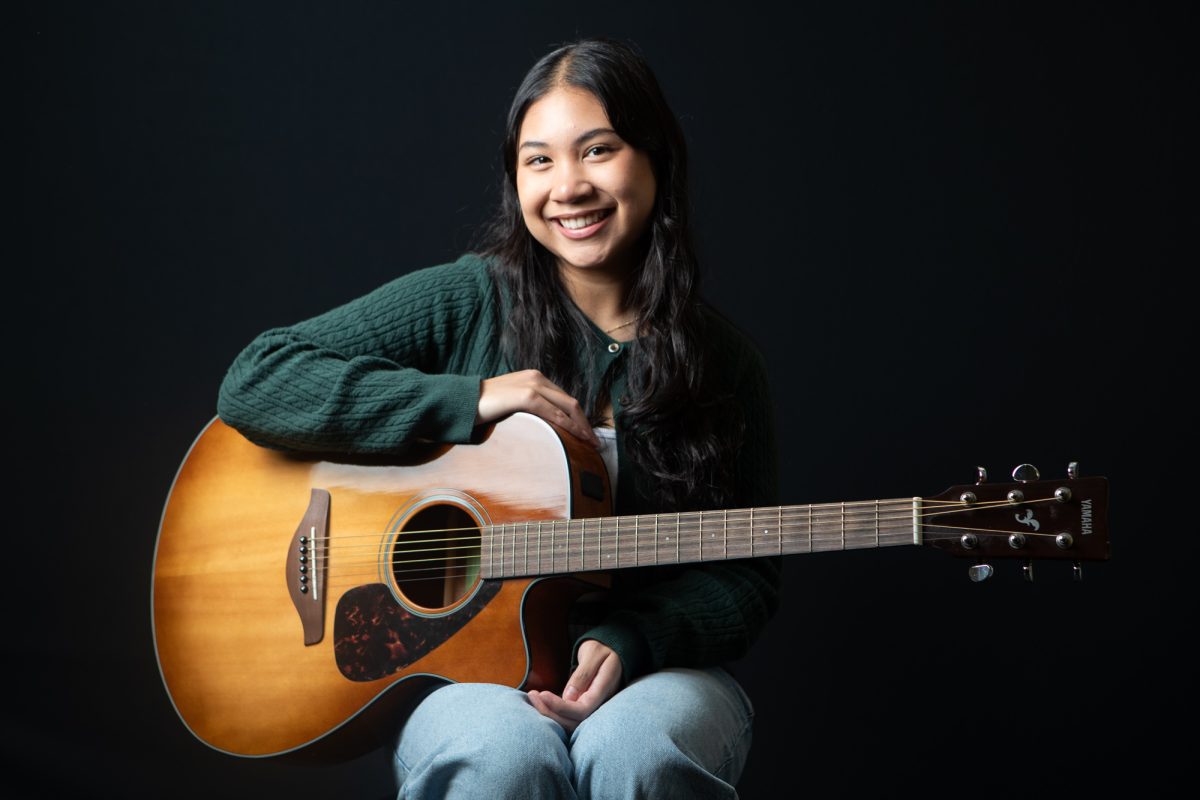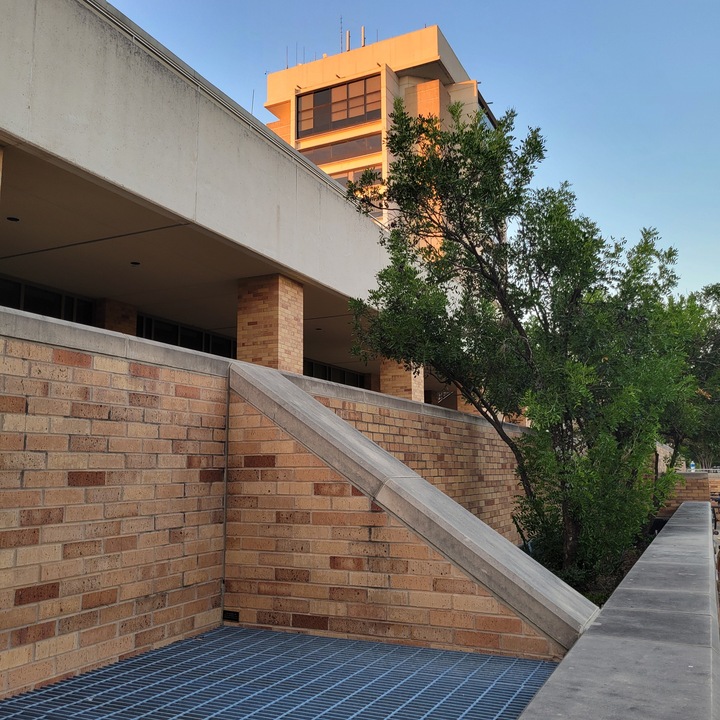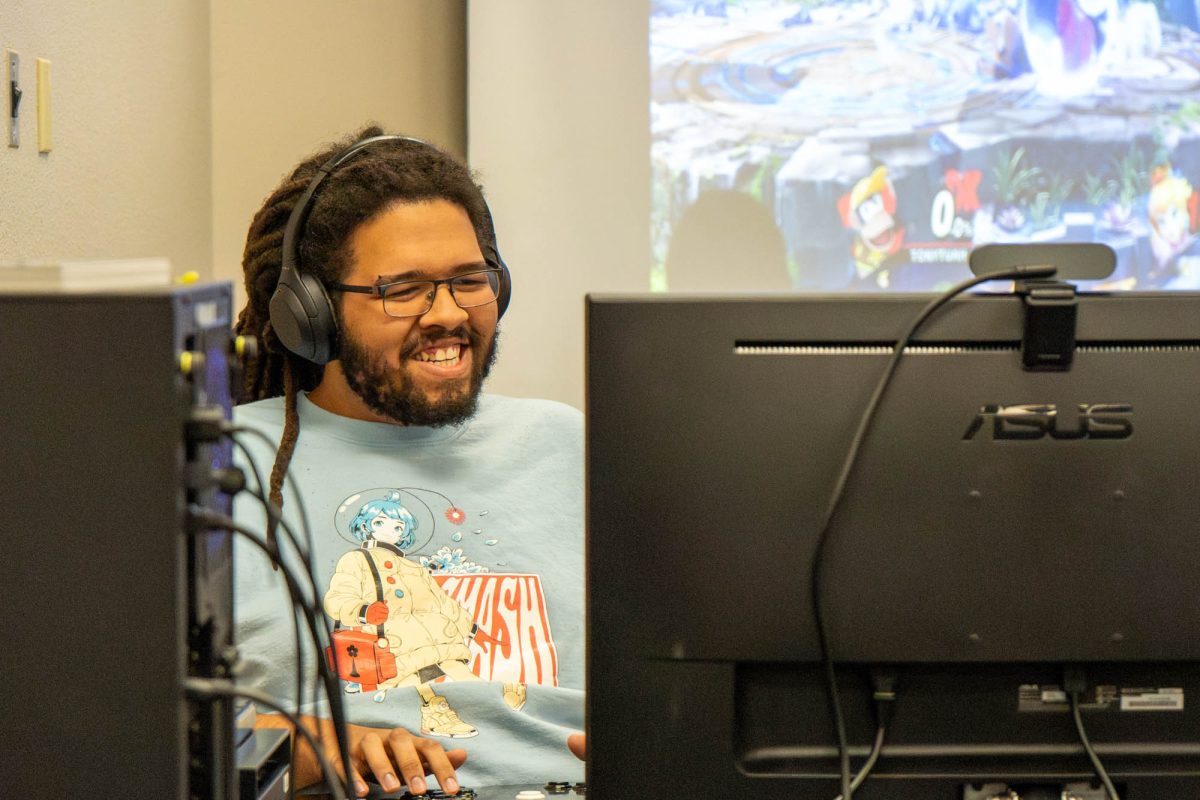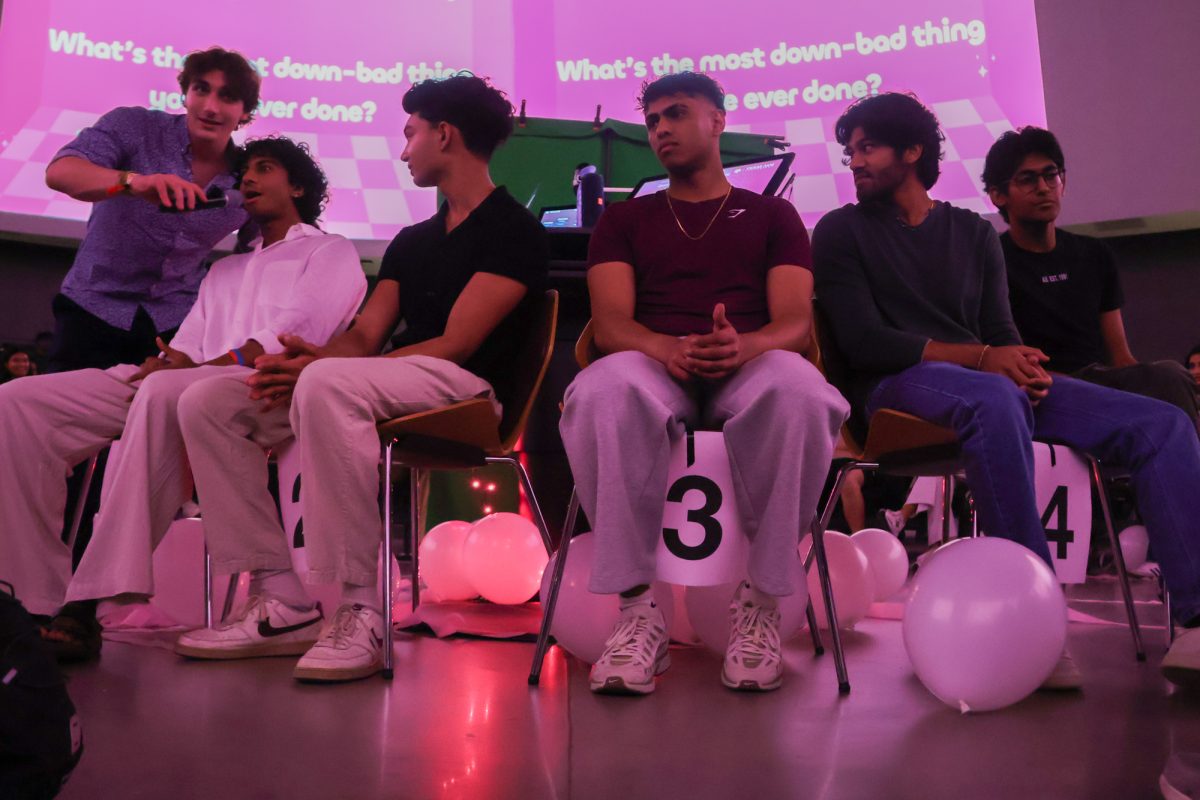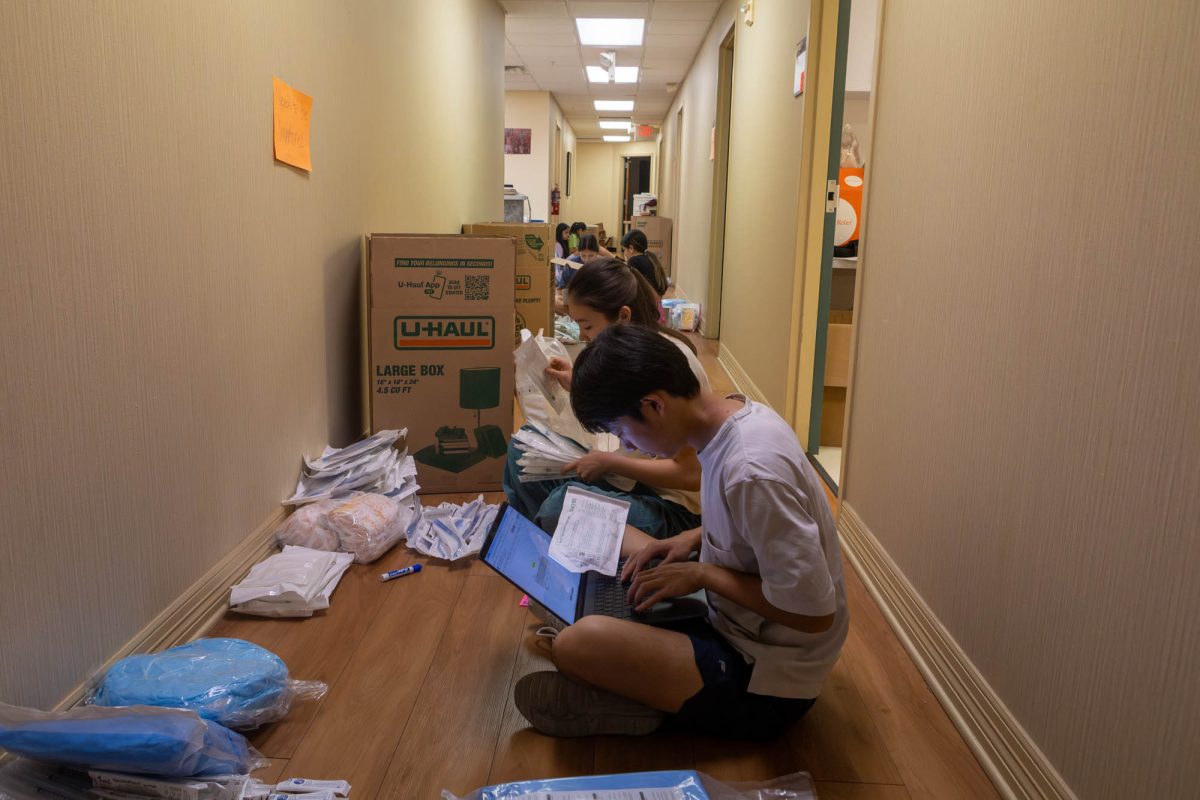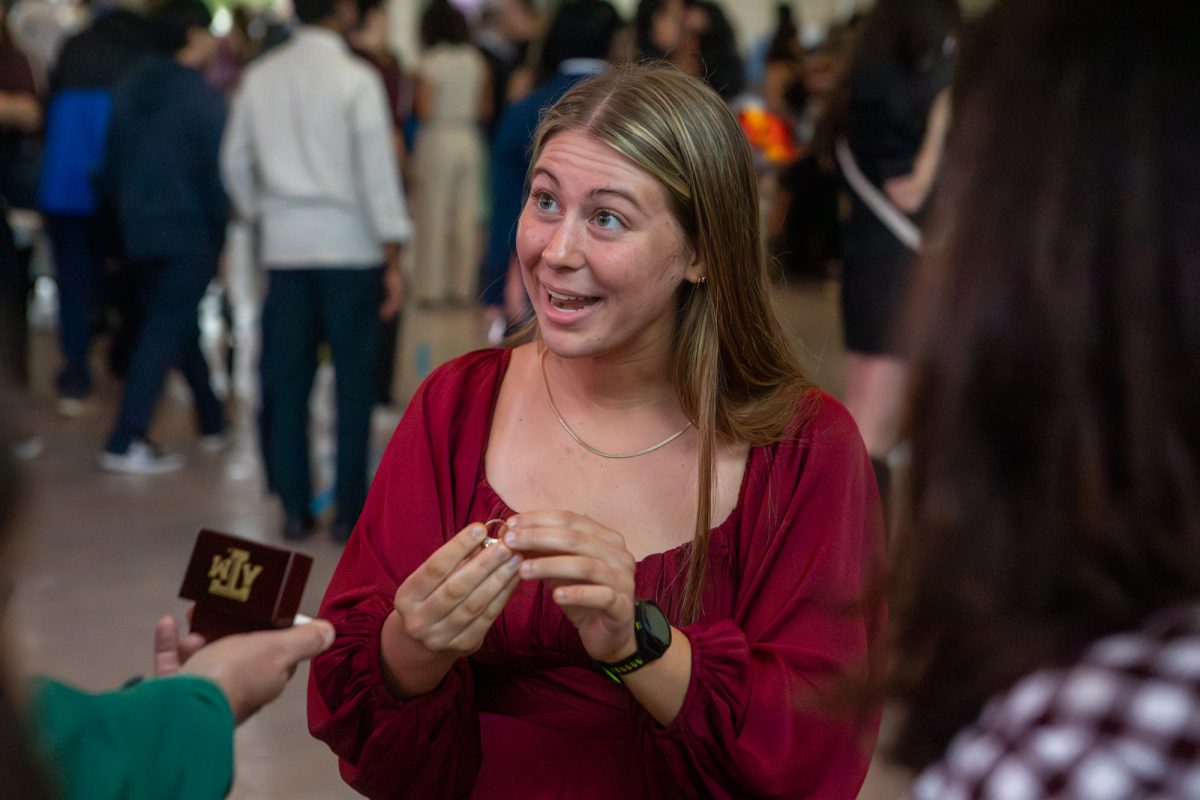Nursing senior Sahale Eubank found her calling on the front line of the fight against the Islamic State.
The town of Al-Baghuz Fawqani, Syria — the last piece of land held by ISIS — was surrounded by Coalition forces. Civilians, including the wives and children of ISIS fighters, were fleeing the front line after weeks of fighting with nothing but the clothes on their backs and what they could carry with them.
And as they fled across the desert, Sahale and the rest of her team were waiting to treat them.
“I saw a lot of amputations,” Sahale said. “I saw a lot of kids with really extreme wounds. And I found that it didn’t disgust me, it didn’t shock me, it didn’t terrify me. It actually made me very interested in medicine.”
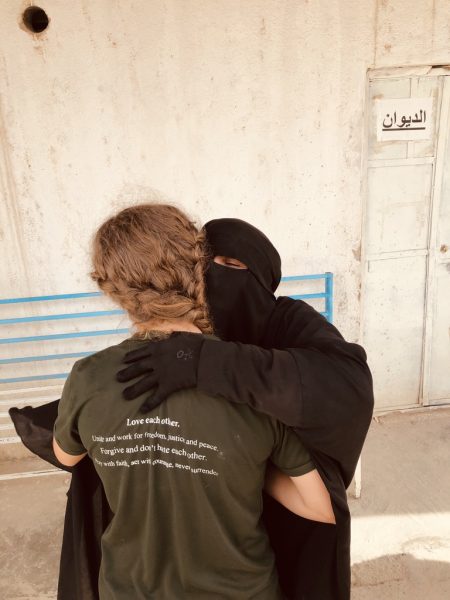
Just before enrolling as a student at Texas A&M, Sahale found herself in Syria as part of a mission with Free Burma Rangers, a humanitarian aid organization originally founded in 1997 by her father, David Eubank, Class of 1983. FBR aims to help those affected by a nearly 80-year-long civil war in Myanmar.
Also known as Burma, the Southeast Asian country has seen fighting between the Burmese military and various ethnic resistance armies since the country gained independence from the United Kingdom in 1948.
That’s where Sahale’s sister, Suuzanne Eubank — a Class of 2024 animal science graduate and fourth-generation Aggie — found her own calling in veterinary medicine. She’s currently applying to A&M’s veterinary medicine school.
As a child, one of her first jobs working with the organization was taking care of pack mules and horses used to deliver medical supplies, food and other aid to villages deep in the Burmese jungle that are only accessible on foot — and she quickly grew to love the animals.
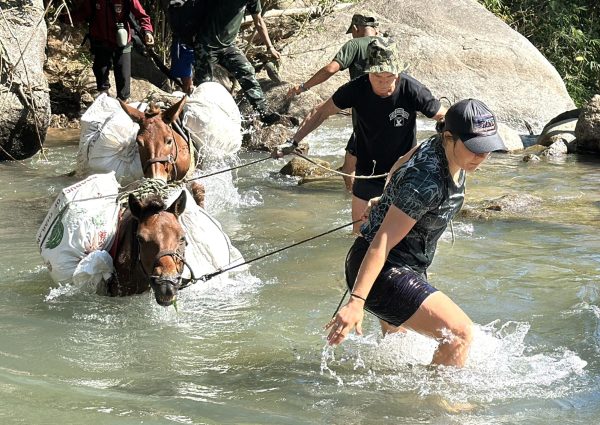
But it was the all-too-common sight of water buffalo and elephants missing limbs after stepping on landmines that solidified the choice in her heart.
“Between landmines and air strikes, it really wounded and obliterated these animals,” Suuzanne said. “It was something that touched my heart in a place that I wanted to help. And so as I prayed about what my next steps were coming out of high school, I started pursuing being a veterinarian.”
Aid in the gap
The origins of what would become FBR can be traced back to 1993, when David — who was in seminary after just under a decade in the U.S. Army — received a plea of help from a tribe in Burma by way of his missionary parents in Thailand.
Fast forward three decades and FBR has grown from David, his wife Karen Eubank and a handful of medics into an organization of dozens of teams that have led relief missions and documented human rights abuses in Burma, Iraq, Syria, Sudan, Ukraine and Tajikistan helping refugees on the Afghan border.
“There’s only three rules in FBR,” David said. “Do this for love because teams aren’t paid. You can’t run if people can’t run away, so that’s spiritual, moral and physical courage. And last is reading or writing in any language because to do the medicine and do the reporting, you have to be literate.”
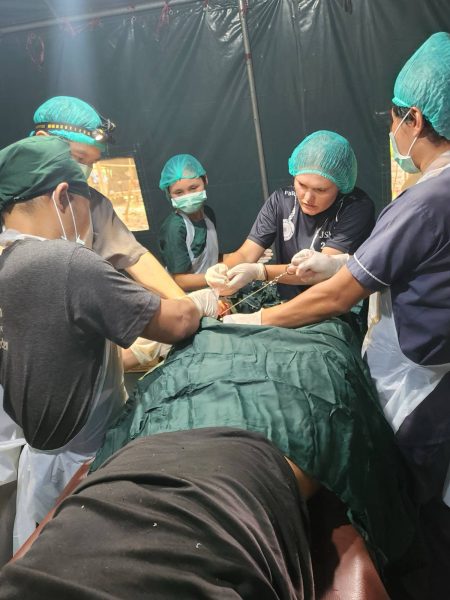
FBR works in the “humanitarian gap,” as David puts it — the space between the front lines of conflict zones where civilians and combatants are wounded and the larger, well-equipped humanitarian aid organizations that work away from active combat zones.
“There’s the front line where people are getting killed, bullets are smacking into your head, or your buddy’s head, or the wall behind you,” David said. “And there’s a gunfight, and there aren’t non-governmental organizations there. There’s no humanitarian groups there because there’s a kill zone. So there’s always a gap between the place where people get wounded and shot — whether they’re soldiers or civilians — all the way back to refugee camps and hospitals.”
The organization doesn’t claim to be neutral — “free the oppressed” is an often-repeated mantra, and FBR has worked directly with ethnic armies in Burma and Kurdish forces in Iraq, among others.
While some Rangers do carry weapons to defend themselves and those they serve, they are not a group of fighters, soldiers or mercenaries.
“Our job is to love people,” Sahale said. “We’re not there to be hostile to the Burmese military. We’re not pacifists, so we’ll defend ourselves if need be. But our job is not a militant job. We’re not there to go and take a village or go take a camp. We’re there to help people and show love.”
Frontline faith
While FBR itself is not a religious organization — its members consist of atheists, agnostics, animists, Buddhists, Christians, Muslims and others — the Eubanks themselves are devoutly Christian and hope that it is evident in their work.
“One thing that I hope is very visible that sets us apart, I hope, is our desire and pursuance to follow God and his structure of things and his path to doing things,” Suuzanne said. “And I’m not trying to say other organizations don’t, but I really hope that when people see the Free Burma Rangers, they see that we’re marked with God’s love and his pursuance of people in very terrible situations.”
David says there are multiple reasons why the family goes on the missions that they do, but the biggest, and the first, priority is their faith.
“People say, ‘Why do you do what you do?’” David said. “I say, ‘Well, there’s four reasons. One, spiritual. This is where God has us. Second is intellectual. Oppression is wrong. We want to stop it. Third is emotional. We love these people. They love us. We want to stand with them. Fourth is physical. We like action. We like challenges.’”
Both Sahale and Suuzanne credit God with leading them to A&M — much to the joy of David, who credits his time in the Corps of Cadets with molding him and his family into what they are today.
“They’ve learned a lot and really appreciated the high standard of learning that occurs here but also the high standard of love,” David said. “When I see that they’ve got all these things in this school, I think, ‘Well, I’m really glad that they came here. And that they learned not just the technical aspects of nursing and veterinary care, but they learned how to love.’ They learned a bigger picture.”
The sisters quickly acclimated to Aggieland, competing on the Aggies’ rugby and polo teams in addition to their studies — but that doesn’t mean the move to A&M was smooth sailing.
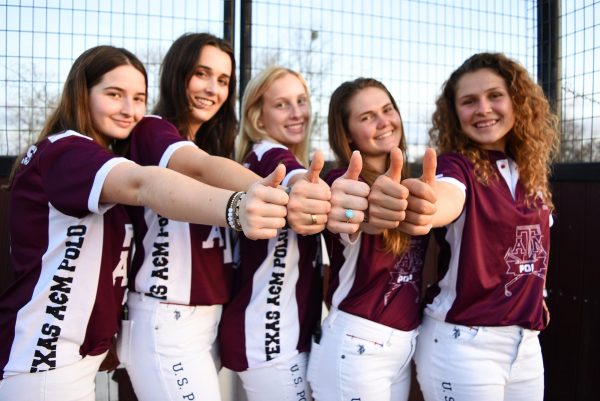
Half a world away from the rest of their family and friends, Sahale and Suuzanne could only keep up with FBR’s activities from a distance.
“The hardest part of that transition was seeing all of the reports and being a part of all the group chats and emails that went back and forth about what was going on in Burma and Iraq and Syria, and knowing that God has you in College Station where there’s no bullets flying and mortars landing, and that’s his purpose,” Suuzanne said. “And that it’s good, and that God still is going to take care of the people you love and the people you want to sometimes be with.”
Being on a college campus, especially after so many Burmese college students joined the war in Myanmar after a 2021 military coup, put things in perspective for Sahale.
“Some of them had psych degrees or were right in the middle of their degrees,” Sahale said. “They are from the city as well as from the jungle. But they all wanted the same things: a good education, a family at the end of their education, as well as a good life afterwards. And realizing that that was taken away from them, but there’s something that can be done about it.”
Doing something about it, as Sahale calls it, looks different for different people. For the sisters, that’s been anything from driving ambulances during the Battle of Mosul in Iraq to running kids’ programs and handling financial reports for FBR’s operations in Burma. Others’ calling can be more mundane — but it all starts with a heart to serve.
“As you’re serving God, to live is Christ and to die is gain,” Suuzanne said. “I know that’s kind of dramatic, but it is actually something I walk in on missions and truly everywhere I go because there’s car crashes everywhere. You can get hit by an A&M bus. So you never really know, but to pursue the good things that God has for you — I think that’s what our purpose is in life.”



